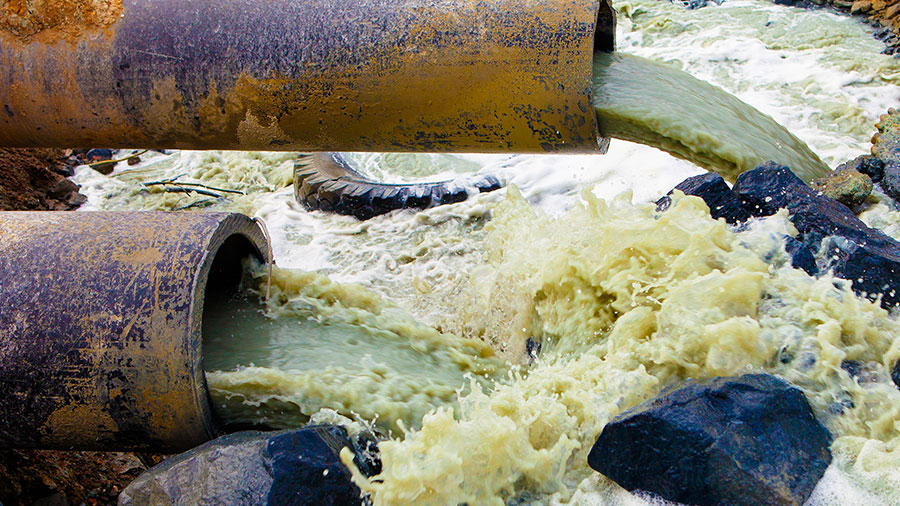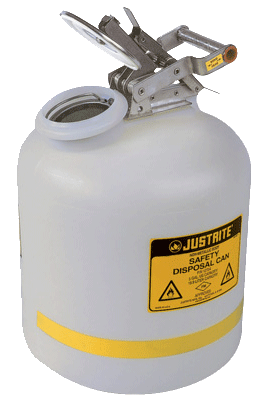Leading Liquid Waste Disposal Melbourne: Trusted Solutions for Correct Waste Administration
Wiki Article
Comprehending the Comprehensive Process of Liquid Garbage Disposal: Ideal Practices and Environmental Influence Considerations
The administration of liquid garbage disposal is a diverse concern that calls for a thorough understanding of different finest methods and their linked ecological effects. From the kinds of fluid waste created to the techniques utilized for collection, therapy, and final disposal, each action plays a crucial role in securing ecological communities and public health. As governing criteria evolve and technology advances, the discussion around these procedures comes to be progressively essential. What ramifications do these changes hold for future sustainability initiatives, and exactly how can stakeholders ensure that they are adequately resolved?Sorts Of Liquid Waste
Recognizing the numerous kinds of fluid waste is crucial for reliable monitoring and disposal methods. Liquid waste can be generally classified right into a number of types, each calling for special handling and therapy techniques.Industrial fluid waste frequently consists of hazardous materials, consisting of hefty steels, solvents, and chemicals, produced during making procedures. These wastes necessitate stringent governing conformity to safeguard human health and wellness and the setting. Residential liquid waste mainly describes wastewater created from households, including sewage and greywater, which, although much less poisonous, can still pose considerable dangers if poorly managed.
Agricultural liquid waste, including drainage from farms, usually contains fertilizers and pesticides that can result in environmental deterioration if not treated adequately. Medical fluid waste, created from healthcare facilities, includes contaminated liquids such as physical fluids and chemicals, needing specialized disposal techniques to avoid infection and ecological contamination.
Last but not least, oil and oil waste, typically created by dining establishments and vehicle industries, can cause severe clogs in sewage system systems otherwise handled appropriately. Recognizing these groups assists in targeted methods for therapy, compliance with laws, and effective disposal approaches, eventually promoting environmental sustainability and public wellness safety and security.

Collection Techniques
Efficient collection methods are critical for the appropriate administration of fluid waste, making certain that it is gathered securely and effectively before therapy or disposal. Various strategies are utilized depending on the kind of fluid waste produced, the volume, and the details attributes of the waste.One typical approach is making use of dedicated collection storage tanks or sumps, which are created to capture fluid waste at the resource. These systems often integrate pumps that facilitate the transfer of waste to bigger storage space containers or treatment facilities. Additionally, mobile collection units outfitted with vacuum cleaner innovation are utilized in situations where waste is created intermittently or in hard-to-reach areas.
For industrial settings, closed-loop systems can successfully minimize spills and leakages, permitting the recovery and reuse of liquid waste. It is likewise important to train personnel on proper collection methods to minimize risks connected with unsafe substances.
Moreover, applying normal maintenance routines for collection devices ensures ideal efficiency and safety and security. The assimilation of advanced tracking systems can improve collection performance by providing real-time information on waste degrees and potential risks. Generally, reliable collection methods are foundational to lasting fluid waste management practices.
Treatment Processes
Treatment processes play a crucial function in the monitoring of fluid waste, changing possibly unsafe materials into recyclable sources or risk-free effluents - liquid waste disposal. here These procedures can be generally classified right into physical, chemical, and organic approaches, each tailored to address certain contaminants present in the waste streamPhysical therapy methods, such as sedimentation and filtration, work by removing suspended solids and particulate issue. These techniques are often the primary step in the therapy chain, successfully decreasing the tons on succeeding processes. Chemical treatments involve the use of reagents to counteract harmful compounds, precipitate hefty metals, or oxidize organic toxins, consequently improving the safety of the effluent.
Biological therapy processes, consisting of activated sludge systems and anaerobic digestion, profit from the natural capacities of bacteria to weaken raw material. These approaches are especially reliable for wastewater including eco-friendly pollutants. Advanced therapy modern technologies, such as membrane filtering and progressed oxidation processes, are progressively used to achieve higher degrees of filtration.
Incorporating a combination of these therapy techniques not just ensures compliance with regulative criteria but likewise advertises ecological sustainability by recouping valuable resources from fluid waste.
Disposal Options
Just how can organizations make certain the safe and responsible disposal of fluid waste? Reliable disposal alternatives are essential for securing public wellness and the setting. The key approaches include land therapy, disposal, and incineration complied with by discharge right into metropolitan wastewater systems.Land disposal entails the mindful control of fluid waste in marked land fills, ensuring that it does not seep right into bordering dirt or water. Incineration, on the various other hand, subjects liquid waste to high temperatures, converting it into ash and gases, which need appropriate filtration to reduce emissions. This method is suitable for hazardous wastes that can not be dealt with via conventional ways.
In situations where liquid waste can be treated, companies might go with chemical or biological therapy procedures to reduce the effects of dangerous elements before releasing the dealt with effluent into municipal systems. This course typically straightens with governing needs, making certain that the effluent fulfills safety and security requirements.
Eventually, organizations must perform detailed analyses of each disposal choice to identify its stability, taking into consideration elements such as waste composition, governing compliance, and possible dangers to health and wellness and the setting. By choosing appropriate disposal approaches, companies can add to a responsible waste monitoring technique.
Ecological Effect
The ecological effect of fluid waste disposal is a critical factor to consider for companies seeking to decrease their ecological impact. Improper disposal techniques can lead to considerable contamination of water resources, soil deterioration, and adverse impacts on neighborhood environments. As an example, dangerous fluids can seep into groundwater, presenting threats to drinking water materials and marine life. Furthermore, the discharge of untreated or improperly treated waste right into surface area waters can lead to eutrophication, leading to oxygen exhaustion and the succeeding fatality of fish and other organisms.
To reduce these influences, companies have to browse around here take on ideal methods such as carrying out extensive waste treatment procedures, advertising recycling and reuse, and adhering to regulatory standards. By taking an aggressive strategy to fluid waste administration, entities can considerably decrease their environmental impact while sustaining sustainable development objectives. Inevitably, a thorough understanding of the ecological effects connected with liquid garbage disposal is important for informed decision-making and liable stewardship of all-natural resources.
Conclusion
Effective administration of liquid waste is important for securing environmental honesty and public health. Inevitably, a comprehensive understanding of liquid waste disposal not just minimizes environmental influences however additionally fosters a dedication to liable source management and environmental stewardship.The administration of liquid waste disposal is a diverse concern that calls for an extensive understanding of numerous ideal techniques and their associated environmental impacts. From the types of liquid waste generated to the techniques used for collection, treatment, and final disposal, each action plays an essential function in guarding ecological communities and public health.The environmental impact of fluid waste disposal is a crucial consideration for organizations seeking to reduce their ecological impact. Eventually, a thorough understanding of the ecological effects connected with liquid waste disposal is vital for notified decision-making and accountable stewardship of natural resources.
Inevitably, a thorough understanding of fluid waste disposal not just reduces environmental impacts yet additionally promotes a commitment to responsible source administration and environmental stewardship.
Report this wiki page